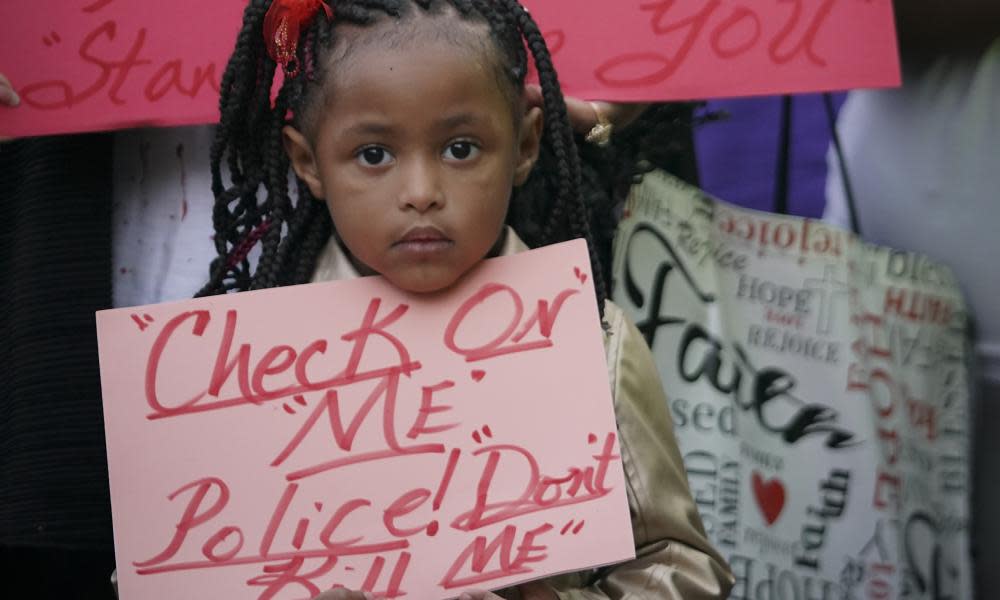A black woman was shot and killed by police in her house. We need real justice

Last month, a judge sentenced former Dallas Police Officer Amber Guyger to 10 years in prison for entering the wrong apartment in her building and killing Botham Jean, her neighbor. Lee Merritt, the Jean family attorney, boasted: “This is a victory for black people in America. It is a signal that the tide is going to change here. Police officers are going to be held accountable for their actions, and we believe that will begin to change policing culture all over the world.”
But it would not. Guyger’s conviction didn’t even change police culture near Dallas. Before the ink could dry on the sentencing papers, a Fort Worth police officer entered into Atatiana Jefferson’s home. He shot and killed her within seconds. She was playing video games with her nephew. A neighbor called a non-emergency number for a wellness check because Atatiana’s door was open late at night. In 2013, Fort Worth police also killed a man in his own garage during a wellness check. The officers were not prosecuted.
Merritt and some activists have issued calls for “more justice.” I understand this impulse. After a police killing, prison is something, and that something can feel like justice when the other option seems like nothing. People understandably want police officers to be punished for killing black people. They also hope that prison will send a warning message to other officers that they cannot get away with murder. But that’s not how policing works. If we want black people, or anybody, to be safe from police violence, then we must first be clear about one thing: prison is not justice. It is punishment, and contrary to popular belief, sending more cops to prison may not make other black people safe.
Cop convictions are increasing, but cop killings roughly remain constant. As I have written before, police have killed about 14,000 people in the last 13 years, but only about 20 officers have been convicted of murder or manslaughter charges- an all time high. On average, police officers kill about 20 black people each year in Texas, and over 200 every year nationwide. Prison time certainly punishes some police for past behavior, but the US supreme court grants police so much legal protection for violent behavior that most of the killings are legal, constitutional or unexamined.
Safety for black people could be less about sending individual cops to prison, and more about creating the conditions where people do not rely on police to feel safe. I was 13 years old when I saw a police officer shoot somebody. He was arguing with a teenager at a recreation center over a sign-in sheet. The officer stormed down the side of the basketball court, pulled out his gun, and shot the boy in his arm. After the horrific scream, I grabbed my sister and hid in the locker room for hours. The officer was not arrested. I doubt he was prosecuted. But he left after a few days, soon replaced by another officer with another gun who argued with more black kids over sign-in sheets. As police officers are transferred or sent to prison, new ones replace them, but the job description does not change. Thus, organizing around a single cop’s conviction misses the point that policing is problematic, and one officer’s punishment is a job opening for a future officer to inflict more harm and violence on communities of color.
So what can happen instead of calling the police? Atatiana’s death is tragic because her neighbor called a non-emergency number for help. He sought an alternative, but the police came anyway, guns blazing. One immediate lesson here is to not send police officers for non-emergency calls. There are ways that people practice safety intervention everyday. Scholar and prison abolition organizer Rachel Herzing instructs us to “prepare for emergencies when not in crisis.” This means memorizing numbers of neighbors close by, securing someplace to go if home is not an option, encouraging people to build small teams to share resources and protection with each other, and ultimately organizing to reduce the size and scope of police.
As for what should happen to police officers after they kill someone right now, I deeply sympathize with fence sitters who believe in prison abolition, but feel wrong about including cops in that vision. What pushes me to the abolition side is knowing that whatever punishment we demand for police is going to come back tenfold on black people. If a black man mistakenly kills a white woman police officer in Texas, her brother is not going to forgive him. A judge will certainly not warmly embrace him with a hug. He will not get sentenced to ten years. He will slowly die in a cage or quickly by execution on a cold table.
Justice for Atatiana Jefferson must include reducing the size and scope of police, while building a world where our neighbors could knock on our doors, shout into the dark and ask if we are safe.
Derecka Purnell is a social movement lawyer and writer based in Washington, DC

